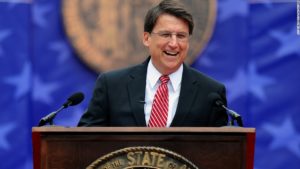by WorldTribune Staff, September 8, 2016
The NBA has moved the 2017 All-Star Game out of Charlotte. New York Democrat Gov. Andrew Cuomo has banned non-essential state travel to North Carolina.
The Tar Heel state’s response – big whoop!

Despite multiple calls to boycott North Carolina over its House Bill 2 (HB2), the so-called transgender bathroom bill, North Carolina’s economy continues to roll.
“North Carolina has experienced ten consecutive quarters of per capita income growth equal to or greater than the national average,” the latest data show, according to the Civitas Institute.
Brent Lane, Director of the UNC Center for Competitive Economies at UNC-Chapel Hill, said that, beginning in the fourth quarter of 2013, that is “the best stretch of comparative income growth since 1996.”
That growth represents an additional $4 billion in annual income for the state, according to Lane’s figures.
In 2013, North Carolina “passed historic state tax reforms, reducing personal and corporate income taxes in what many hailed at the time as the largest tax cut in the state’s history,” Civitas noted.
“Also, in 2013 the state implemented unemployment insurance reforms which enabled North Carolina to pay back roughly $2.5 billion in debt to the federal government far earlier than the original payback plan, a move that has paid off with major tax relief for employers.
“Looking at job numbers since 2013 also yields impressive results. From mid-2013 to the summer of 2016, job growth in North Carolina has outpaced regional and national averages, with the broadest measure of employment indicating one of the top ten strongest labor market improvements in the country during that time.”
The state legislature further cut income tax rates last year while raising the standard deduction for all taxpayers.
“It may be premature to conclusively determine what role the 2013 tax reforms played in North Carolina’s improved fortunes these last few years, but the evidence is becoming more convincing by the quarter,” Civitas said.
As Lane put it: “Ten consecutive quarters is approaching a significant correlation to that policy shift, though evidence of causality is only anecdotal and impossible yet to parse out from a complicated combination of economic factors.”
